Abstract
A multiple-baseline design was used with two target classroom groups (n = 28 and 27) in a study to reduce electrical energy waste in college classrooms. A dittoed letter, signed by a faculty member, was sent to each professor in the prompt condition. In the letter the professor was informed that he or she taught prior to an unscheduled period and was asked to turn off lights following the class. The results showed that after the prompt, the percentage of rooms with lights turned off increased by 13% and 6% in each target group. A further analysis of the 10 classrooms that had the lowest baseline rates of turning lights off indicated a 30% increase after the prompt. This study indicates that a minimum prompt procedure was effective in reducing electrical energy waste. The further significance of these results are also discussed.
Keywords: energy conservation, prompting, electricity conservation, ecology
Full text
PDF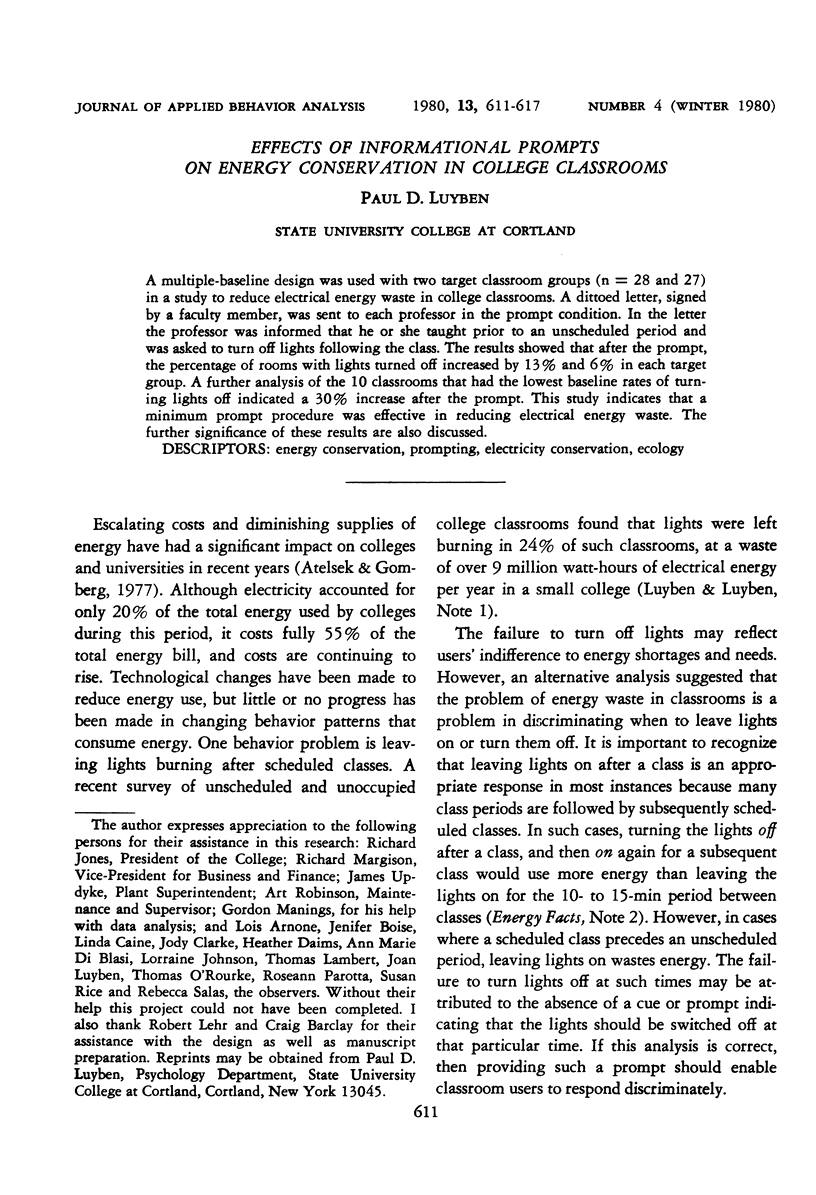
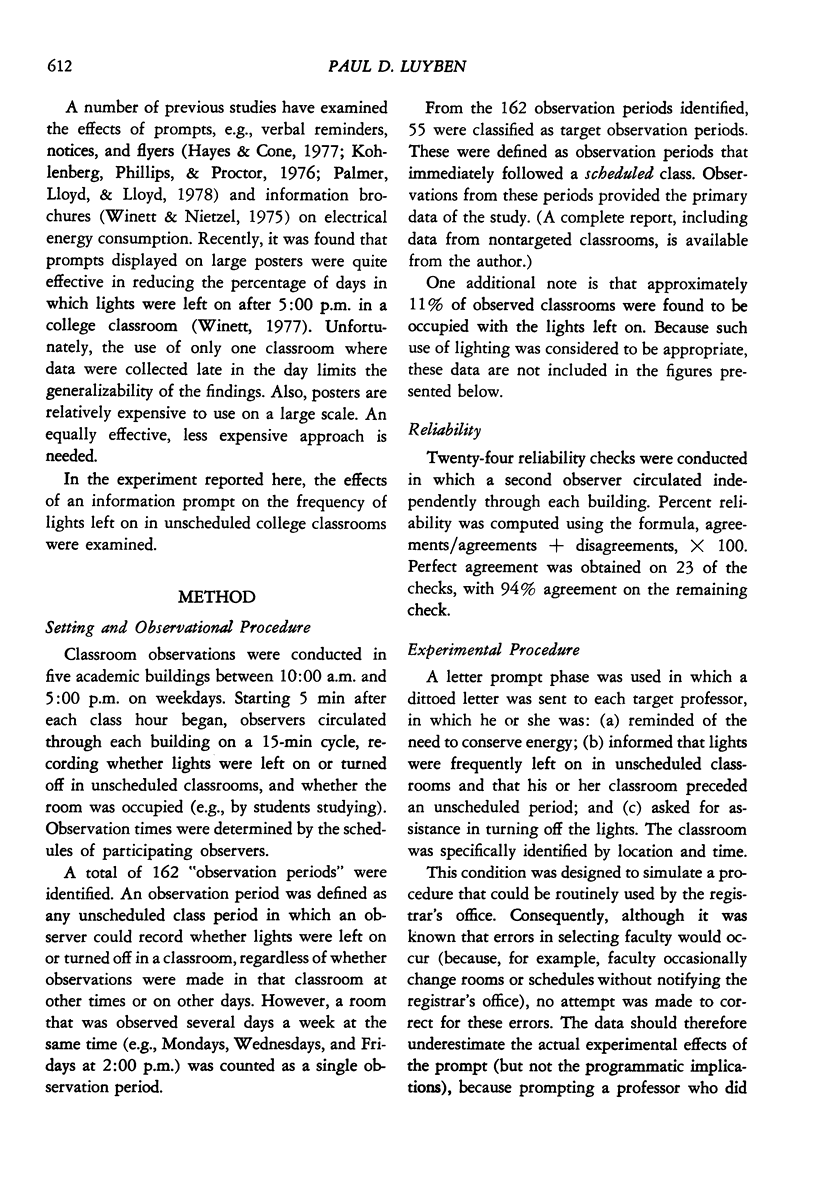
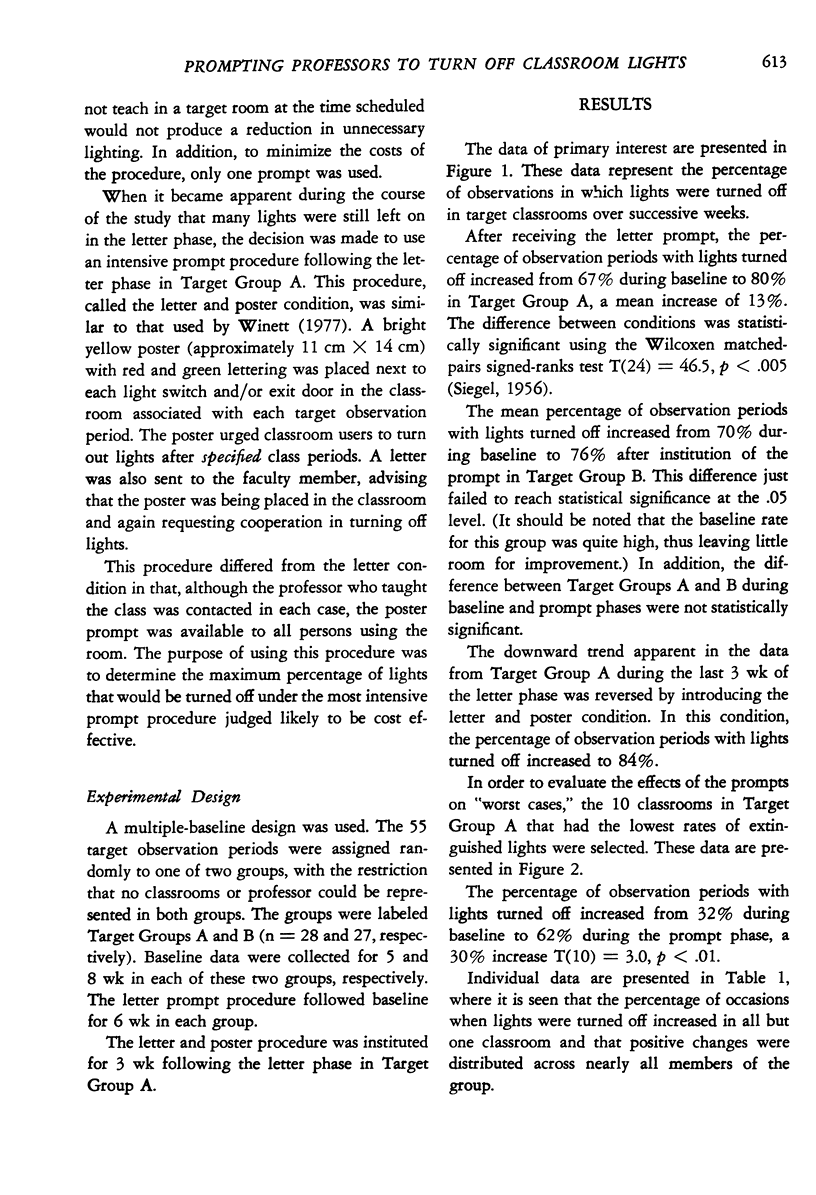
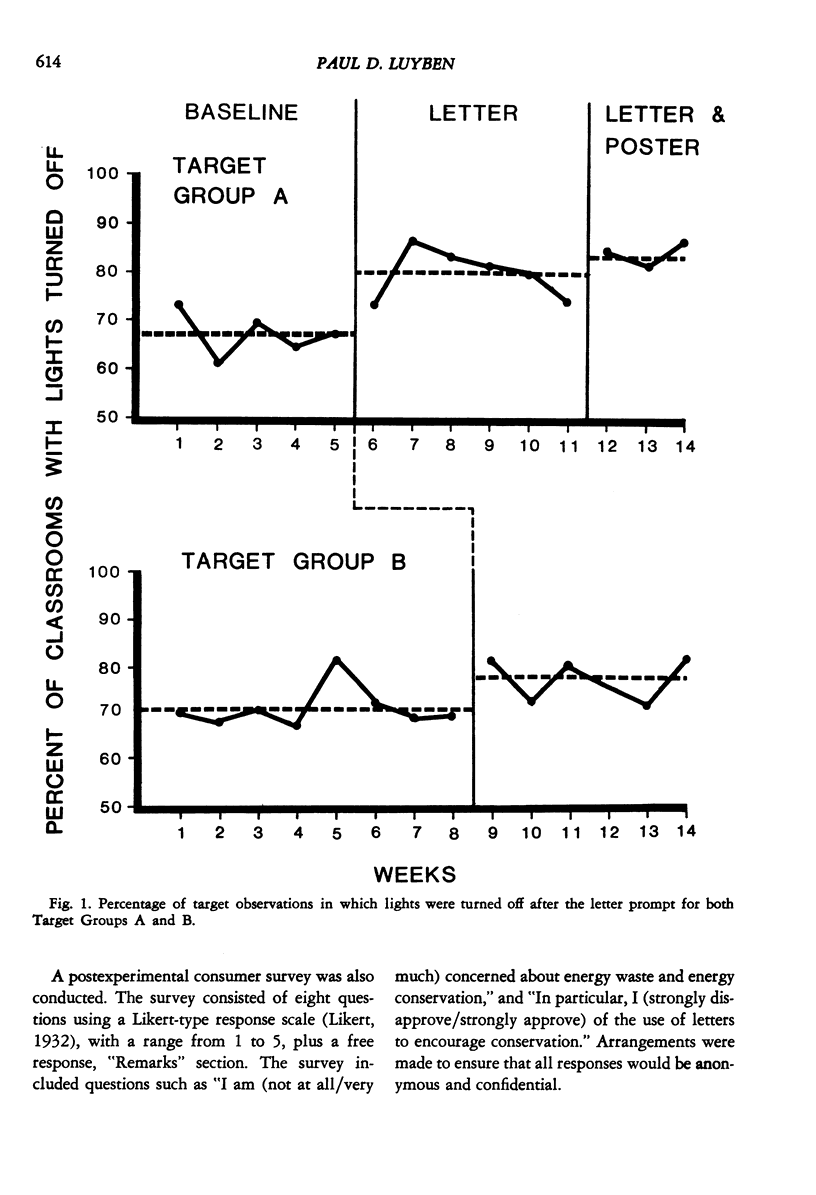
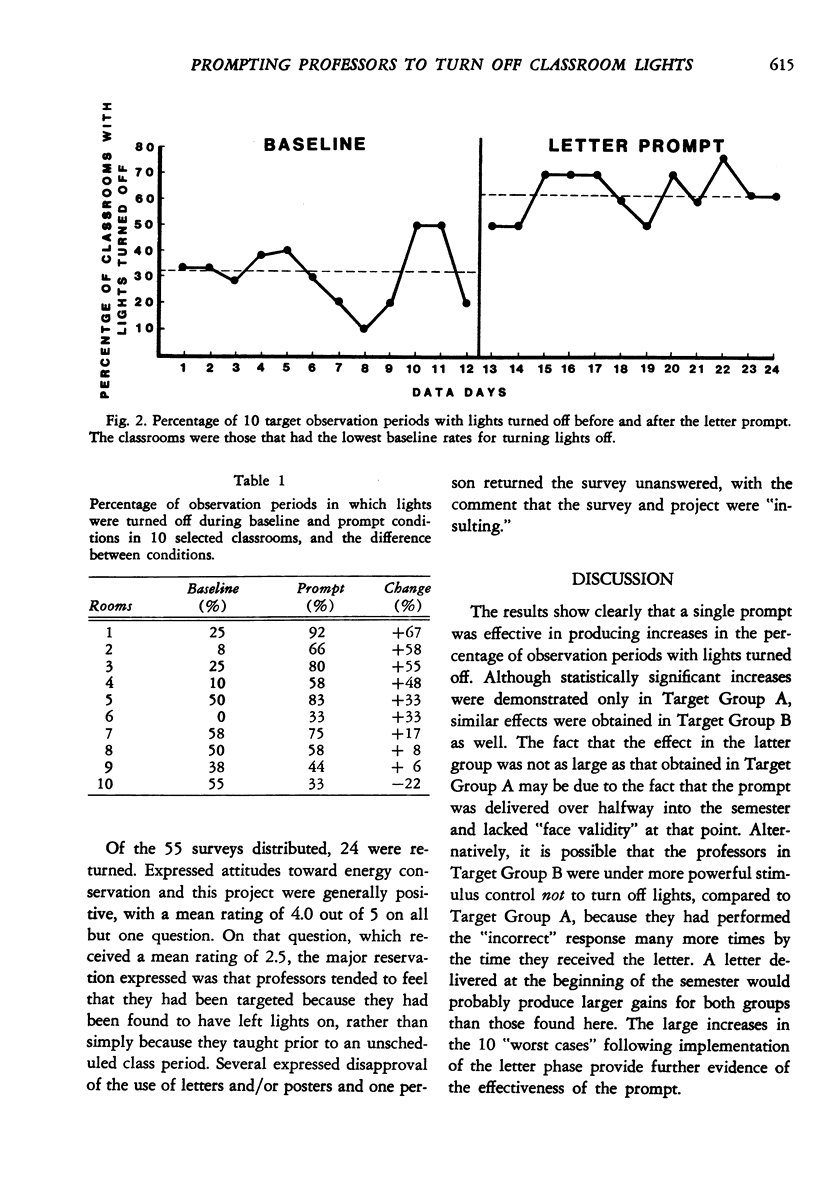
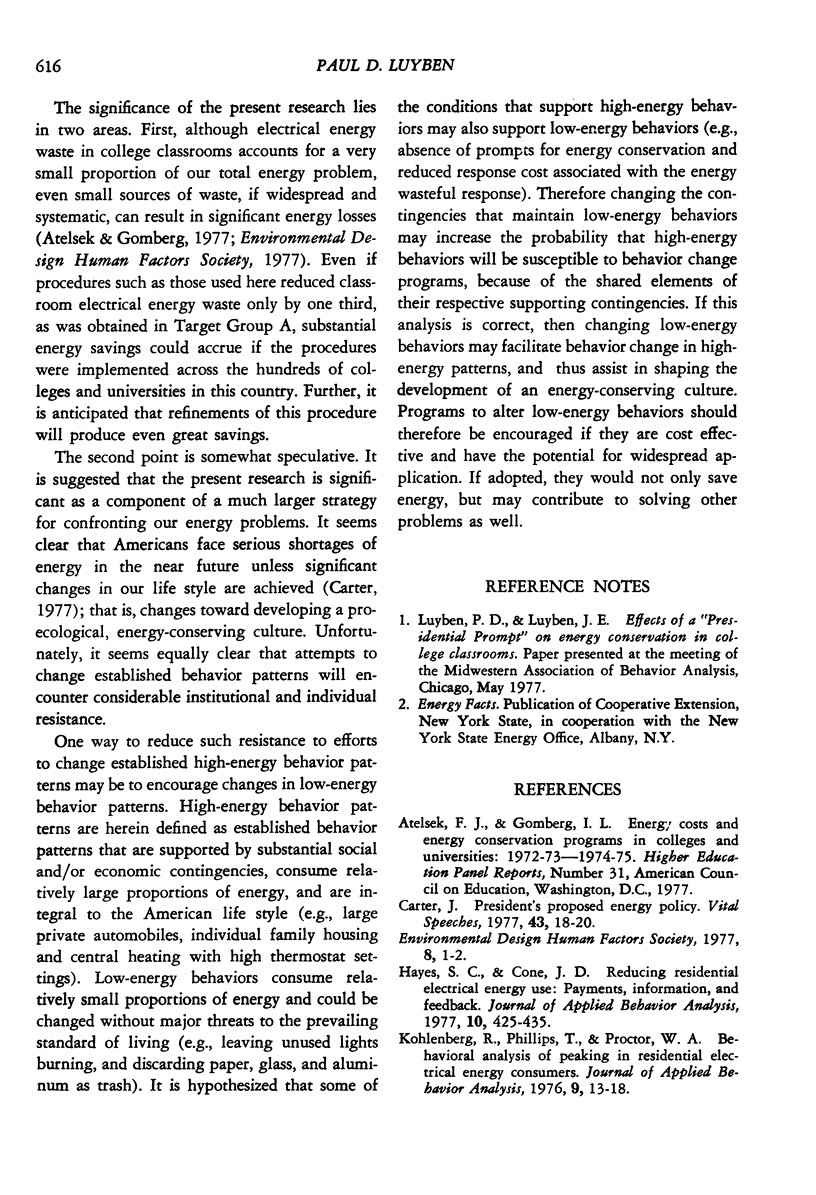
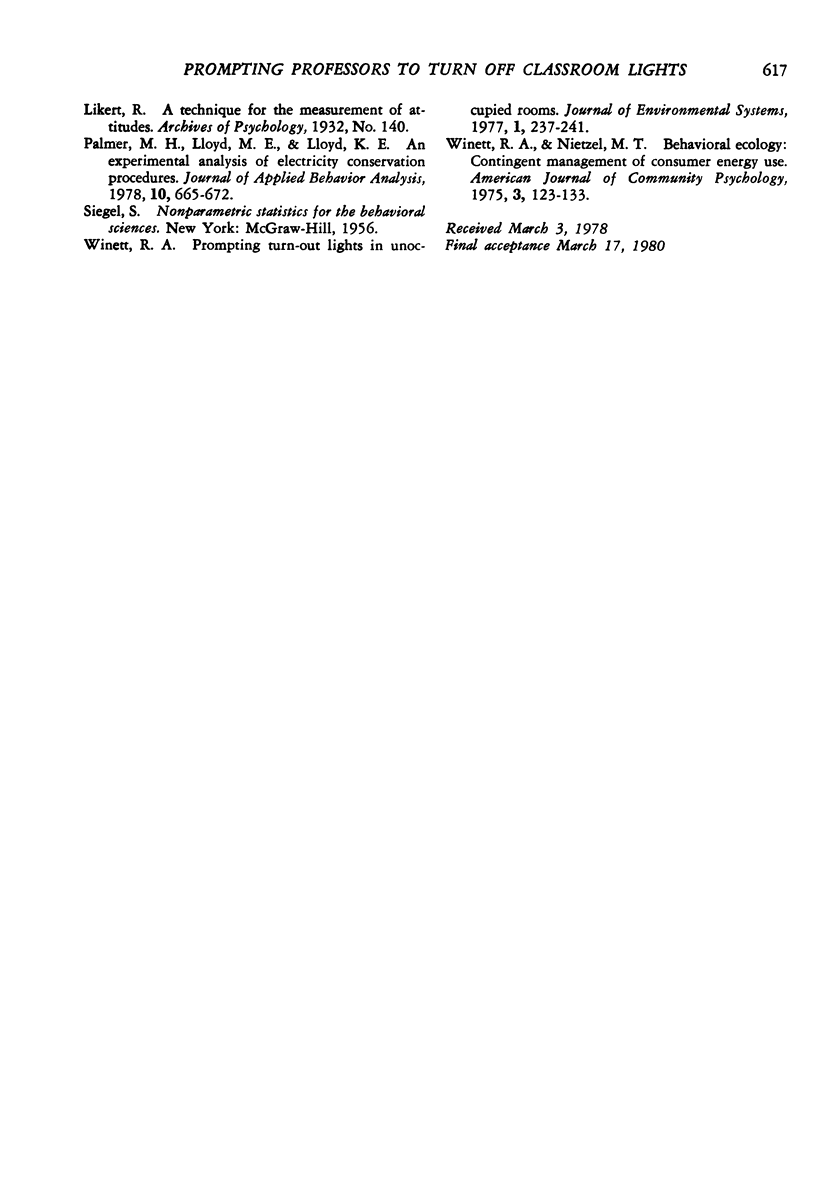
Selected References
These references are in PubMed. This may not be the complete list of references from this article.
- Hayes S. C., Cone J. D. Reducing residential electrical energy use: payments, information, and feedback. J Appl Behav Anal. 1977 Fall;10(3):425–435. doi: 10.1901/jaba.1977.10-425. [DOI] [PMC free article] [PubMed] [Google Scholar]
- Kohlenberg R., Phillips T., Proctor W. A behavioral analysis of peaking in residential electrical-energy consumers. J Appl Behav Anal. 1976 Spring;9(1):13–18. doi: 10.1901/jaba.1976.9-13. [DOI] [PMC free article] [PubMed] [Google Scholar]
- Palmer M. H., Lloyd M. E., Lloyd K. E. An experimental analysis of electricity conservation procedures. J Appl Behav Anal. 1977 Winter;10(4):665–671. doi: 10.1901/jaba.1977.10-665. [DOI] [PMC free article] [PubMed] [Google Scholar]


